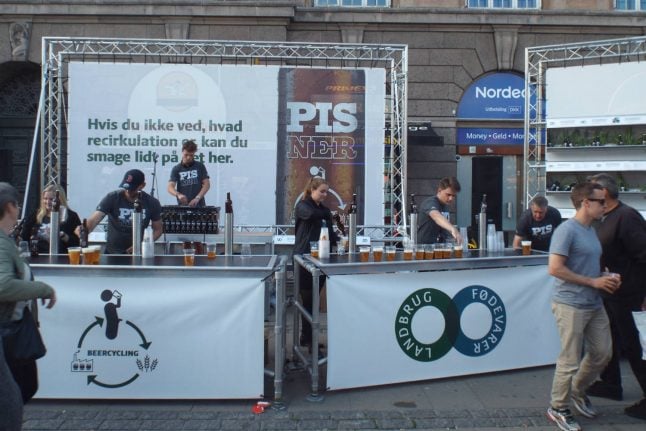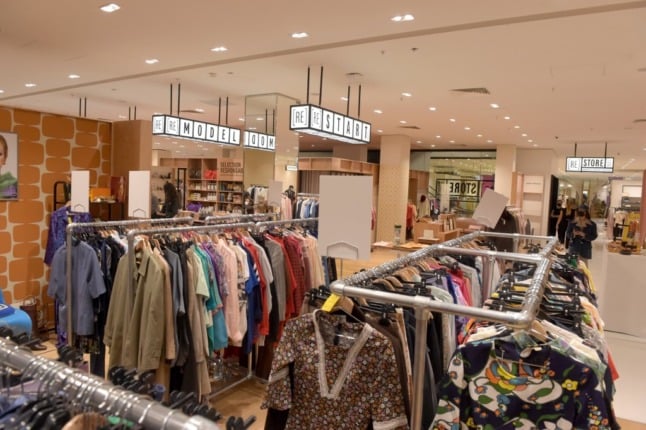Under a surprisingly warm Copenhagen sun, a DJ is playing techno music while staff behind a long bar hand out recyclable plastic cups of free beer to anyone who finds themselves fortunate enough to pass by.
Emblazoned across the cups, as well as the t-shirts worn by the bar staff, is the word ‘PIS’, written in emboldened letters. Yes, you read that correctly, and it means exactly what you think it means, despite the slightly different spelling.
In 2015, the Danish Agriculture and Food Council (Landbrug & Fødevarer, DAFC) collected 54,000 litres of urine from festival attendees at the Roskilde Festival.
During spring 2016, the liquid body waste was used as fertiliser, yielding 11 tons of malting barley, which was then used to produce the beer – which, of course, contains no actual urine.
Now, the project – dubbed 'beercycling' – has come full circle, with production completed and the beverage, given the brand name Pisner, ready to go on sale.
READ ALSO: Danish farmers brew beer from recycled festival guest urine
DAFC says that it wants the Pisner beer to show that the urine we normally pour down the drain can be used as valuable nutrition.
“This is about getting the young target group to talk about sustainability. Everyone has an opinion on it,” Lisbeth Odgaard, DAFC’s branding manager for the project, told The Local.
The Danish Agriculture and Food Council brewed 60,000 bottles of the Pisner beer in collaboration with brewery Nørrebro Bryghus.
Photo: The Local
“We’re a 100 percent organic company, and even though Pisner actually isn’t 100 percent organic, the idea of recycling beer is such a good vision that we couldn’t really say no to being part of it,” Henrik Vang, executive director at Nørrebro Bryghus, told The Local.
Having produced the beer, Nørrebro Bryghus will sell it to DAFC, which in turn will supply retailers such as Irma and Meny with the Pisner product.
Vang added that the decision to name the beer ‘Pisner’ was a bold marketing choice.
“It divided the customers. But it’s good to be honest. Then we can explain what it’s all about,” he said.
“We wanted to keep it simple and call it what it is. That’s a lot simpler for marketing than an explanation of circular economy, but still shows we want to recycle our resources,” Odgaard added.
The new beer was given away for three hours straight at the Copenhagen promotion, with around 150-200 people stopping by in the sunshine to try it.
Heeren Jhaveri, a tourist from Philadelphia who had arrived in Copenhagen hours earlier, told The Local that the Pisner beer held its own on flavour.
“It tastes great, considering it’s made from piss,” he said.
READ ALSO: How Roskilde's guests control waste while getting wasted



 Please whitelist us to continue reading.
Please whitelist us to continue reading.